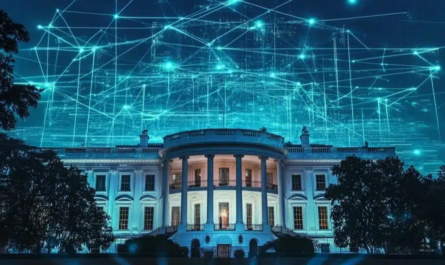OpenAI has launched an internal investigation after a hacker known as “EmirKing” claimed to have stolen and attempted to sell the login credentials of 20 million ChatGPT users on Breach Forums, a notorious hub for cybercriminals.
The post quickly alarmed both the cybersecurity and AI communities. However, experts remain skeptical. Early reviews suggest that the data samples released by the hacker were inaccurate and unverified, raising strong doubts that any real breach occurred. Some specialists believe the incident may be a publicity stunt or an attempt to gain credibility in underground markets.
Still, the claim has reignited global concerns about AI platform security, data privacy, and the rising cyber threats facing fast-growing AI companies like OpenAI.
The Hacker “EmirKing” and the Viral Breach Claim
The controversy began when a Breach Forums user going by the alias “EmirKing” claimed to be selling data from 20 million ChatGPT accounts — including emails, usernames, and passwords. The post rapidly spread across dark web channels and cybersecurity circles.
Curiously, the hacker priced the alleged dataset at only a few dollars per batch — unusually cheap for such a massive trove of sensitive data. That immediately raised red flags among experts. When cybersecurity journalist Mikael Thalan tested two of the sample emails shared by EmirKing, both turned out to be invalid.
Following the claim, OpenAI issued a statement confirming that it was taking the situation seriously and had initiated a comprehensive internal investigation. So far, the company says no evidence points to any compromise of its systems or user data.
Inside Breach Forums — The Dark Web’s Cybercrime Marketplace
The alleged sale took place on Breach Forums, a platform infamous for data leaks, malware sales, and stolen credentials. The FBI shut down the original site in 2023, but several clones have since re-emerged on the dark web.
According to cybersecurity experts, fake data leaks are increasingly common on these forums. Fraudsters often publish false or exaggerated breach claims to boost their reputation, attract crypto payments, or scam potential buyers.
In this case, researchers believe EmirKing’s claim may be part of a social engineering scheme or market manipulation attempt, not a genuine breach.
OpenAI’s Security and the Expanding AI Threat Landscape
Even if this particular incident turns out to be false, it highlights a growing concern — the security vulnerabilities that come with large-scale AI adoption.
OpenAI manages billions of user interactions daily through ChatGPT and its APIs, making it a prime target for hackers seeking access to sensitive information or intellectual property.
This is not the first time OpenAI has faced a security issue. In 2023, a hacker gained access to the company’s internal messaging systems, prompting discussions among policymakers about AI infrastructure security and foreign cyber threats.
As AI becomes central to national competitiveness — especially amid rising global rivals like China’s DeepSeek — the protection of AI platforms has become a national and economic priority.
Were ChatGPT Accounts Really Hacked?
At this point, there is no verified evidence that 20 million ChatGPT accounts were compromised. Independent cybersecurity analysts have found no confirmed links between EmirKing’s dataset and real user credentials. OpenAI continues to report no signs of system intrusion.
Still, even unverified breach claims can lead to phishing attacks or identity theft attempts, as scammers exploit public fear to trick users into revealing information.
✅ Security Tips for ChatGPT and AI Users
To stay safe, users should follow these essential security steps:
-
Change your OpenAI password immediately if you suspect exposure.
-
Enable multi-factor authentication (MFA) for stronger account protection.
-
Avoid clicking on unofficial login or payment links.
-
Monitor your chat history and integrations for unusual activity.
-
Use password managers to create and store complex, unique passwords.
For businesses using ChatGPT APIs or AI integrations, cybersecurity hygiene is even more crucial. Organizations should perform regular vulnerability scans, penetration tests, and endpoint monitoring to minimize potential risks.
Expert Insight: “AI Systems Are Only as Secure as Their Data”
According to Mayur Upadhyaya, CEO of APIContext, the greatest weakness in AI security lies in machine-to-machine communications that lack strong authentication.
“AI systems depend on constant data exchange between APIs. If those channels aren’t encrypted or properly controlled, they become a hacker’s dream,” Upadhyaya explained.
He emphasized that many AI systems transmit sensitive information without robust security frameworks. To strengthen defenses, experts recommend:
-
End-to-end encryption of AI communication channels.
-
Zero-trust network architectures that limit internal access.
-
Strict configuration audits to prevent vulnerabilities caused by human error.
Even with advanced tools, misconfigured systems remain one of the biggest risks in AI deployment — often more dangerous than outdated hardware or software bugs.
AI-Driven Phishing and Data Fraud on the Rise
Cybercriminals are now using AI itself to enhance their attacks. From AI-written phishing emails to deepfake impersonations, these methods are becoming increasingly sophisticated and harder to detect.
In this case, security experts warn that fake breach stories like EmirKing’s may be used to phish ChatGPT users, directing them to spoofed login pages that steal real credentials.
Users should only interact with official OpenAI domains (chat.openai.com) and ignore emails claiming to offer “data protection” or “account verification.”
AI Will Be a Top Cyber Target in 2025
As artificial intelligence becomes essential to global business operations, AI-driven companies are emerging as prime cyber targets.
While the alleged ChatGPT data leak appears unsubstantiated, it underscores a troubling reality — attackers are increasingly focused on AI infrastructure, APIs, and training data pipelines.
Analysts predict that AI-related cyberattacks could double in 2025, targeting both consumer-facing products and enterprise AI systems.
For industry leaders like OpenAI, Microsoft, and Google, maintaining user trust will depend not just on innovation, but on transparency and cybersecurity excellence.
The Bottom Line
There is no solid evidence that ChatGPT user credentials were stolen, but OpenAI’s swift investigation shows how seriously AI companies treat these threats.
Whether real or fake, this incident highlights one undeniable truth: cybercriminals are watching the AI boom closely, and they will exploit any weakness for profit.
For users, the lesson is clear — protect your accounts, verify sources, and practice cyber hygiene.
For AI companies, it’s a powerful reminder that in the age of intelligent systems, trust and security are inseparable.




